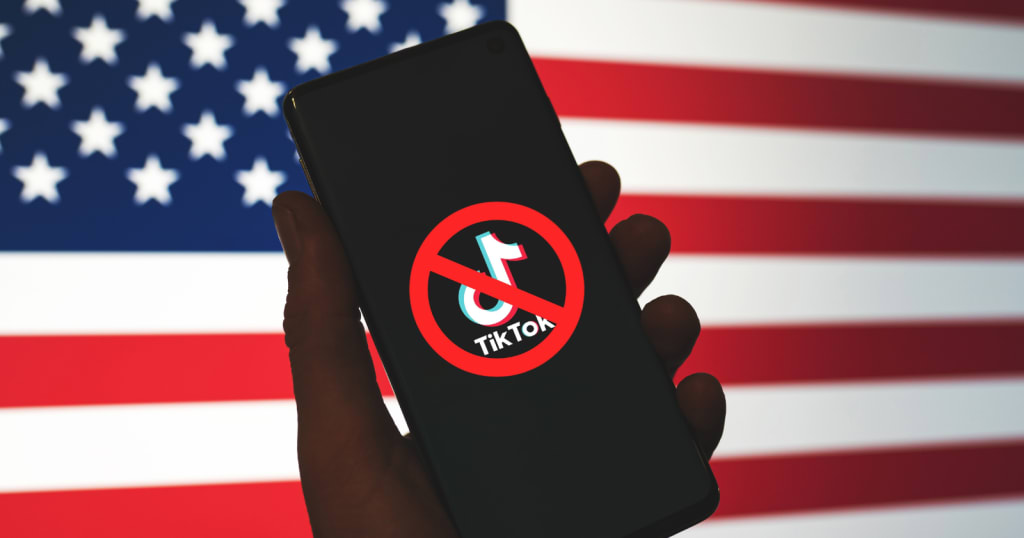McCarthy Expects US House Will Pass Legislation to Address TikTok
TIKTOK

TikTok, the popular video-sharing social networking service, has been at the center of controversy in recent years. The app, which is owned by Chinese company ByteDance, has been accused of posing a national security threat to the United States due to its ties to the Chinese Communist Party.
In response to these concerns, lawmakers in the United States have been taking action to address the issue. Most recently, Representative Kevin McCarthy, the House Minority Leader, has expressed his expectation that the House of Representatives will pass legislation to address TikTok.
In this blog post, we will explore the background of the TikTok controversy, the actions that lawmakers have taken in response, and the potential implications of this new legislation.
- Background
TikTok was launched in 2016 by ByteDance, a Chinese tech company. Since its launch, the app has become incredibly popular, particularly among younger generations. It allows users to create and share short-form videos set to music, often featuring dance routines or comedic skits.
However, concerns about the app's security have been raised due to its ties to the Chinese Communist Party. In 2019, the Committee on Foreign Investment in the United States (CFIUS) launched an investigation into ByteDance's acquisition of the social media app Musical.ly, which was later merged with TikTok. CFIUS raised concerns about the collection of data on American users and the potential for that data to be shared with the Chinese government.
In response, the Trump administration issued executive orders in 2020 that sought to ban TikTok and force ByteDance to divest from its American operations. These orders were met with legal challenges and were ultimately blocked by courts.
- Actions Taken by Lawmakers
Lawmakers in the United States have been taking action to address the national security concerns raised by TikTok. In August 2020, the House of Representatives passed a bill that would bar federal employees from downloading TikTok on government-issued devices. This bill was later passed by the Senate and signed into law by President Trump.
In addition, the Department of Defense and the Transportation Security Administration have both banned the use of TikTok on government-issued devices. The State Department has also issued a warning to Americans traveling to China, advising them not to download the app due to concerns about data privacy.
More recently, lawmakers have been considering more sweeping legislation to address the issue. In September 2021, Senator Marco Rubio introduced a bill that would ban federal employees and contractors from using TikTok on government-issued devices. The bill would also require companies that operate critical infrastructure to disclose their use of Chinese-owned apps like TikTok.
Representative Kevin McCarthy, the House Minority Leader, has expressed his expectation that the House of Representatives will pass legislation to address TikTok in the near future. McCarthy has cited concerns about the app's collection of data on American users and the potential for that data to be used for espionage or other nefarious purposes.
- Implications of New Legislation
If new legislation is passed to address TikTok, it could have significant implications for the app's future in the United States. It is possible that the legislation could seek to ban TikTok outright, as was proposed by the Trump administration.
Alternatively, the legislation could impose restrictions on the app's use by federal employees and contractors, or require companies to disclose their use of the app. This could make it more difficult for TikTok to operate in the United States and could lead to a decline in its popularity among American users.
It is worth noting, however, that any legislation targeting TikTok will likely face legal challenges. The app has already mounted successful legal challenges to executive orders seeking to ban it, and any new legislation will likely face similar challenges.
- Conclusion
The controversy surrounding TikTok is unlikely to go away anytime soon. Lawmakers in the
About the Creator
Muhammad Ali
Hi, My name is Ali. I am a Digital Marketing and SEO expert with 3 years of experience. SEO service, I helped a lot of businesses to grow up. I am working as a freelancer past 3 years. “Customer satisfaction is my first priority"






Comments
There are no comments for this story
Be the first to respond and start the conversation.